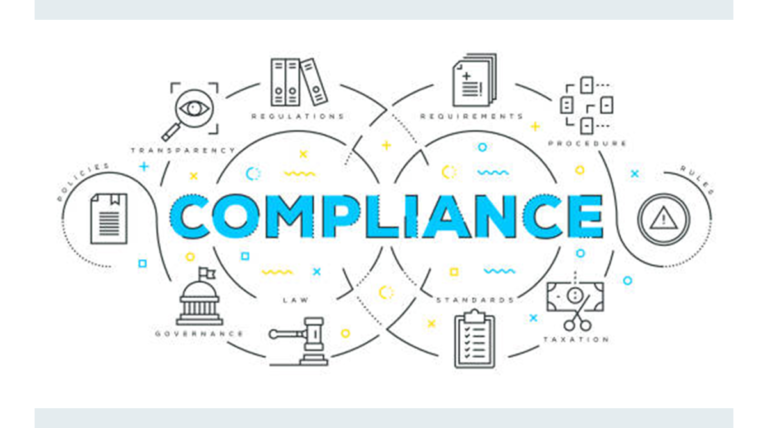
February 13, 2023
Blog
Several compliances must be followed by Limited Liability Partnership (L.L.P.) companies once the business has been incorporated. The timely fulfilment of compliances is a requirement for running a successful business. The mandatory tax compliances for a limited liability partnership company are described below:•
L.L.P. to obtain a Permanent Account Number (P.A.N.) & Tax Deduction and Collection Account Number (T.A.N.) from the Income-tax department•L.L.P. to open a Current Account in the name of the L.L.P. with any Bank in India. All the transactions in the name of the L.L.P. should be transacted through the L.L.P. Bank Account only.
L.L.P. Act – Statutory Compliances:
Regarding an L.L.P., two types of M.C.A. (Ministry of Corporate Affairs) annual returns are required to be filed each financial year. These returns must be filed by the L.L.P. even if no transactions took place in that financial year. The two forms in question are Form 8 and Form 11. The partners of the firm must digitally sign these forms. •Form 8 relates to the statements of accounts and solvency. It includes the statement of Assets, Liabilities and Expenditures of the L.L.P. This Form needs to be filed by 30th October of each financial year.•Form 11 relates to the details of all the partners, contributions of all these partners, etc. This Form must be filed by 30th May of every financial year. Suppose the turnover of the L.L.P. exceeds 5 Crores, or the total contribution of all the partners exceeds 50 Lakhs. In that case, the L.L.P. submitting this Form must certify the said Form by a certified Company Secretary.
Income Tax Act – Tax Compliances:
When is a tax audit required for L.L.P.s? – turnover of more than Rs.40 lakhs or whose total contributions are more than Rs.25 Lakhs – books must be audited by a certified and practising Chartered Accountant. •For L.L.P.s that do not require tax audit, the last date for filing tax returns is 31st July. •For L.L.P.s that require tax audit, the last date for filing tax returns is 30th September.•Limited Liability Partnerships (L.L.P.s), which are required to file Form 3CEB (L.L.P.s which have entered into international transactions), can do their tax filing by 30th November. •L.L.P.s should file their income tax returns in Form I.T.R. 5 online or offline.
Books of Accounts
Section 34 of the L.L.P. Act, 2008 provides for maintenance and audit of the Books of Accounts of any person carrying on a business or profession. This section states that every L.L.P. must compulsorily maintain their books of accounts. According to the conditions mentioned therein, L.L.P.s are required to maintain books of accounts on a cash or accrual basis and according to the double-entry system of accounting. Any L.L.P.s that violates the provisions of Section 34 of the L.L.P. Act can be punishable with a fine of a minimum of Rs.25,000 up to a maximum of Rs.5,00,000.The term Books of Accounts has been explained in Rule 6F. According to the said Rule, Books of Accounts are said to constitute cash books, ledger, carbon copies of bills and original bills wherever they have been issued, and receipts regarding any expenditure incurred by the person.Following Rule 24 (8) of L.L.P. Rules, any L.L.P. with a turnover of more than Rs. Forty lakhs or capital of over Rs. Twenty-five lakhs have to get their Books of Accounts audited by a certified Chartered Accountant.
L.L.P. Audit
Those L.L.P.s who have turnovers that exceed Rs. 40 lakhs, in any financial year or who have financial contributions that exceed Rs. 25 lakhs are required to get their accounts audited.•Suppose an L.L.P. decides to not audit their accounts. In that case, they are required to refer to this decision in the Statement of Account and Solvency, which is a declaration by the partners in which they acknowledge the responsibility they have undertaken in complying with the requirements concerning the preparation of the books of accounts and a certificate in the specified Form, which is Form 8. Preparation of this certificate and statement is to be done per the relevant Act and Rules provisions. •Only a Chartered Accountant in practice shall audit L.L.P.s according to Rule 24 (9)•An L.L.P. may appoint one or more auditors every financial year in order to audit its books according to Rule 24, sub-rule 10 and 11.
A step-by-step list of the required compliances is given below:
1.G.S.T.: a. As prescribed in G.S.T. Act and Rules, businesses with an annual turnover of more than Rs. Forty lakhs (Service providers 20 lakhs) must do G.S.T. Registration. It is not mandatory to obtain G.S.T. registration immediately after incorporating the L.L.P. The L.L.P. can obtain this registration when it becomes eligible.b.The due dates for an L.L.P. to file G.S.T. returns are the 20th of each month for GSTR 3B returns.2.TDS: Dependent upon whom the money is payable as mentioned in Sec. 194C of Income Tax Act3.Audit: A Chartered Accountant is required to certify the company’s audit report that is to be submitted.
Keywords: Limited Liability | Partnership | L.L.P. | Tax Compliance | Chartered Accountant | Tax Audit | F.Y. |




